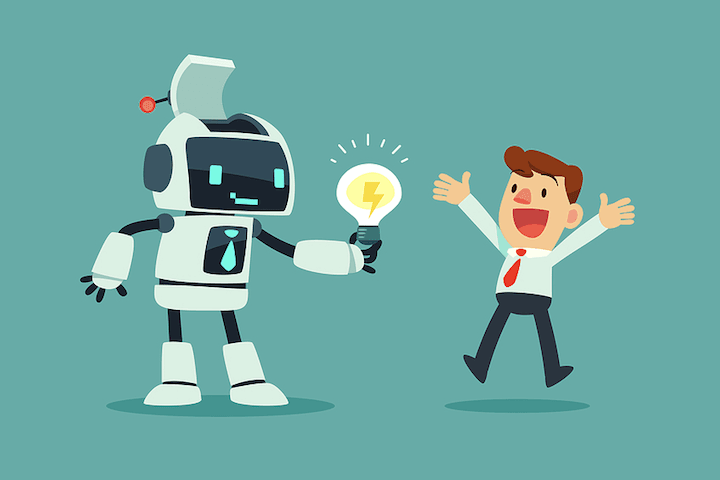Few would argue the enormous impact artificial intelligence is already having on the workplace.
From sifting CVs to analyzing sentiment on engagement surveys, or powering chatbots to answer commonly asked employee queries, AI is infiltrating into virtually all aspects of HR and employment.
But is there one area that should forever remain in-person and sacrosanct: mentoring?
Or is AI now elbowing its way into this area too?
Well, let’s just say one company – Workera – is arguably making one of the first big steps into using AI as a mentoring tool.
Sage!
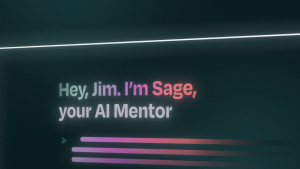
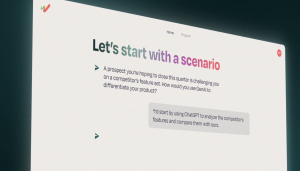
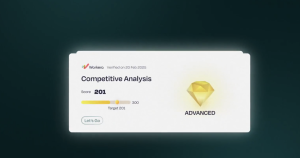
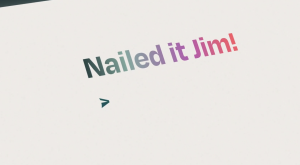
In September, Workera officially launched ‘Sage’, a new AI tool branded as being the first-ever AI mentor, and which is designed to transform enterprise learning and development.
By being able to respond to employees’ active conversations, Sage is reportedly able to act as a sympathetic guide to staff, by offering seamless onboarding, actionable insights, talent analytics, and data-driven recommendations.
It is able to deliver the exact L&D is thinks learners need (all based on verified skill data), and it can even present where staff stand in the organization and what steps they should take to close their skills gaps.
It all sounds pretty revolutionary, doesn’t it?
But is this a brilliant use of AI and the perfect utilization of its data-crunching capabilities, or the start of an inexorable slide to a position where employees will have an AI (non-human) mentor rather than someone who is actually real, who has been there, got the T-shirt and is able to offer real-life insights gained through real-life experience?
Well, to get into the nitty-gritty of this, TLNT thought it would be a sage approach to speak to the man behind Sage himself, Workera CEO, Kian Katanforoosh.
Here’s what he has to say…
Q: To many, the thought of having an AI mentor seems alien, so is this really what we’re talking about here?
A: “Where the conversation needs to begin, I think, is the difference between automation and augmentation. True mentorship is based around face–to-face interactions, based on trust and inquisitiveness. What we’re doing won’t replace human mentors, but it will significantly improve paths of the mentoring process. A mentor first has to understand the skills of people, so why shouldn’t AI does this? AI is actually much better at doing this. Then, we can leave the encouragement and inspirational element back to real people.”
Q: What’s the exact AI element here then?
A: “AI is great at focusing on exactly what you tell it to do. It can analyse against the set definitions that are needed for someone having certain skills for certain jobs, and it can then measure and assess people against these skills in a conversational way. A single (real) person can’t possibly have the memory/capacity to hold all these elements in their head, whereas AI can better decide on things such as this. Finally, there’s also the fact that in my opinion, AI will be less biased than the average human interviewer.”
Q: Will this also benefit employees though?
A: “We very much think it will. From learners’ point of view, we’ve been hearing for the last five years – since Covid-19 really – that they’re feeling under more pressure to know exactly how they should be spending their time to up-skill themselves – in a specific way – that will make them more employable. People feel that their skills need to be refreshed faster, and they’re under pressure to understand where their current skills will take them. They are needing to be more deliberate and intentional about taking their learning to another level. Leaders are realising they are shooting in the dark from a skills assessment point of view.”
Q: And for HR?
A: “HR professionals have lots of data, but the data they have is actually quite noisy. I think we’ve reached that realization point where AI cannot simply ‘invent’ information, but it can – in this context – validate people’s skills, or what inference someone’s skills could have. Companies want good data-in, to be able to make better data decisions.”
Q: What do employees themselves actually think of the AI mentor interface? Do they feel comfortable having skills ‘conversations’ with a computer?
A: “In tests we’ve done, people are getting used to it more. Remember, they are already used to ChatGPT and chatbots, and also, the conversations they are having are very focused. Conversations can’t go beyond certain boundaries; it’s about validating their skills only. I think of the AI ‘agent’ here as not being uncontrollable. They are just grounded in skills competency networks, and there is analysis and monitoring to ensure the right questions are made/answered. It’s still the feeling of people having a conversation though, and that’s the element that I feel brings trust.”
Q: What’s your vision for AI and mentoring going beyond just skills mapping. Are we soon going to enter the domain of having proper AI mentors?
A: “My vision is more managers augmenting their abilities with AI, particularly around difficult tasks such as recruitment and knowledge management. As HR tasks are delegated to AI agents, agents can verify skills and knowledge gaps, and then design ways employees can be steered. Slowly, I foresee managers surrounding themselves with AI agents that are very specialized. Managers then have more time for other strategic work. Remember, a common complaint from employees is that they don’t see enough of their managers enough, so having AI agents will definitely enable this to happen. Managers are currently spread ‘so’ thinly, it’s often difficult for them to be able to coach.”
Q: What’s the reception of Sage been like so far?
A: “It’s been really good. Lots of investors have reached out to us; and we’re getting interest from L&D leaders especially. The natural home for this is probably the L&D and chief technology officer.”
Q: What’s next?
A: “The dream is uncovering untapped talent. We know talent is being sucked away from organizations, and so companies are increasingly looking to see how they can use the internal skills they have to transform. There is a tremendous wealth of expertise just sitting in companies that often isn’t being harnessed. The most effective employees of tomorrow are the ones whose skills can be properly identified and augmented if necessary.”
